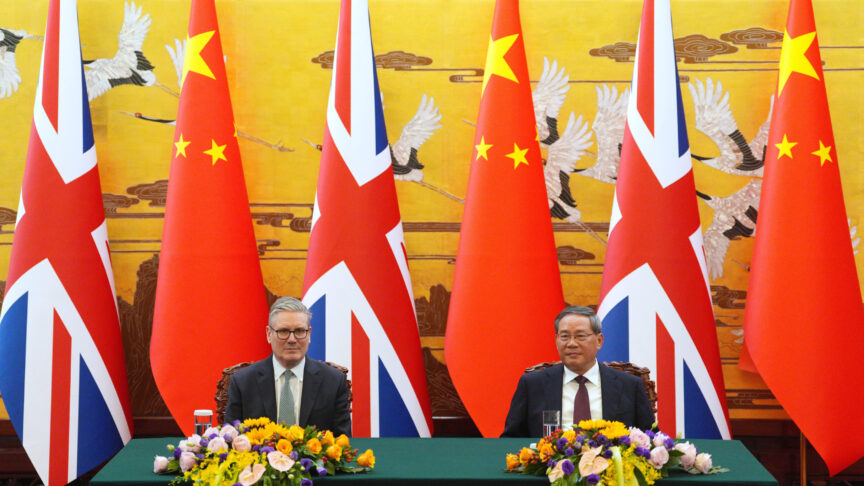How should Europe respond to Russia? The Spanish view
Spain's cautious approach regarding the Ukraine crisis is rooted in a complex cluster of factors, including geographic distance and economic ties with Russia.
This paper is part of a series of papers presenting views from experts in various European capitals on Russian policy, including those from Finland, Germany, Italy, Poland, Austria, and Hungary.
Madrid is widely considered to be one of the European capitals most receptive to the Kremlin. For observers of Spanish foreign policy, the question is no longer whether Madrid is pro-Russian or not, but why Spain sounds so pro-Russian. And the question has no obvious or easy answer. Bilateral economic relations, although promising in some sectors, are not particularly deep. Political and diplomatic relations are fluent but neither special nor strategic. The answer is to be found elsewhere, in a combination of long-term and short-term factors. Even those implementing the policies do not seem to have a conclusive argument to explain Spain’s pro-Russian stance.
For observers of Spanish foreign policy, the question is no longer whether Madrid is pro-Russian or not, but why Spain sounds so pro-Russian.
In private conversations, high-level Spanish officials praise what they consider to be an exercise in political and diplomatic coherence. Unlike that of other European capitals, Madrid’s reaction towards the Maidan uprising was, at best, lukewarm. According to Spanish officials, the transformation of the Ukrainian political crisis into an armed conflict in the Donbas shows that Spain’s cautious approach was the right one. On only one occasion – the annexation of Crimea – did Spain stand firmly with Brussels against Russia’s violation of international law. However, this firm position, like the one it took on Kosovo’s independence, is primarily shaped by Madrid’s concerns about Catalonia and the Basque Country and is completely unrelated to Spain’s links with Ukraine or Russia (or Serbia). And while Madrid thinks that Moscow has “legitimate interests in Ukraine” that should be taken into consideration, it would not accept any solution that involved giving legitimacy to the Crimean referendum and Russia’s annexation of the region.
Spain’s low profile throughout the Ukraine crisis has been the result of its traditionally low interest in Eastern Europe, the preeminent role of economic issues in its current foreign agenda, and the focus on its bid for a non-permanent seat at the UN Security Council for the 2015-2016 period, which discouraged it from taking potentially controversial initiatives and was resolved in October 2014. Besides, since the outbreak of the global financial crisis in 2008, Spain has had to bear a heavy economic burden leading it to abandon previous attempts to develop a more proactive foreign policy.
The current bilateral economic relationship with Russia is limited. Moscow is a top oil supplier for Spain (14 percent of total imports in 2013), but Spanish oil supply is highly diversified. The Iberian peninsula consumes no Russian gas at all. In 2013 Spanish exports totalled €234 billion, of which Russia accounted for €2.8 billion, making it Spain’s nineteenth-largest export market. But Russian direct investment in Spain is negligible and Spanish investment in Russia is low, totalling €218 million in 2013. However, after years of efforts on the Spanish side, the relationship has begun to take off. From this perspective, the Ukrainian crisis arrived at the worst possible moment. As Antonio Sánchez Andrés, a long-time observer of the Spain-Russia economic relationship, points out, while the current total figures are modest, Russia is considered a key partner in tourism and real estate, two crucial sectors for the Spanish economic recovery.
According to Spanish officials, the transformation of the Ukrainian political crisis into an armed conflict in the Donbas shows that Spain’s cautious approach was the right one.
The number of Russian tourists visiting Spain began to skyrocket in 2008 with half a million visitors and peaked in 2013 with more than 1.5 million. This still represents only a small portion of the approximately 60 million tourists who visited Spain last year. But Russia is the fastest growing origin market and its tourists have higher average expenses per person than others. In real estate, Russian investors could play a key role in overcoming the current gridlock in the sector. Therefore, a weak rouble and poor performance in the Russian economy could harm Spain’s economy. That is why Spain was so reluctant for the European Union to impose economic sanctions on Russia.
The three sanctions packs on Russia adopted by the EU have so far had a very limited impact on Spain and on Russian companies with a presence in the country. Antonio Sánchez Andrés estimates that the real impact in annual trade will be €500 million. The Spanish government’s main concern at this stage is that the impact will be concentrated in the agriculture and livestock sector of three regions (Aragon, Catalonia, and Valencia). The unaffected companies (mainly large ones in the energy and infrastructure sectors) fear a potential fourth pack of sanctions, and Madrid is likely to oppose adamantly any effort to impose further punitive measures.
However, the economy is by no means the only reason for Spain’s position on the Ukraine crisis and on the EU-Russia split. Madrid’s institutional inertia and its unwillingness to take seriously Russia’s neighbours’ concerns can be explained by distance, a mutual positive image usually based on ignorance and romanticised clichés, as well as a lack of historical conflicts with Russia. The concerns of the Baltics in particular are generally received with a barely concealed disdain. This historical legacy has shaped the dominant perceptions among Spanish policymakers, diplomats, and the military, regardless of the specific government that is in place.
Spain’s official position on the Ukraine conflict is in stark contrast with that of the four main think tanks devoted to international relations in Spain: Elcano Royal Institute, ECFR Madrid, FRIDE, and CIDOB Barcelona. One common critique coming from these think tanks is that the “geopolitical approach” weakens Spain’s position at the EU level, which negatively affects Madrid’s foreign agenda. The Spanish government is aware of the discomfort that its position has created among some of its allies (including the United States). Since last May, after Ukraine’s presidential elections, Spanish Minister of Foreign Affair has planned to visit Kyiv as proof of Spanish commitment to Ukraine. At the moment, the visit is scheduled for early 2015.
A weak rouble and poor performance in the Russian economy could harm Spain’s economy.
Although Vladimir Putin’s image among Spaniards is quite negative, another factor that must be taken into account is the traditional and politically transversal resentment towards the US. Nevertheless, as GMF’s “13th Transatlantic Trends Survey” suggested last September, there is a split between the opinions of the general public and of the Spanish political – and probably economic – elite on Russia’s meddling in Ukraine. It is remarkable that for the very first time, a crisis taking place in Eastern Europe has triggered polarised and sometimes intense domestic debates in Spain. As elsewhere in Europe, the Kremlin has effectively promoted its “anti-fascist narrative” about Maidan and the Donbas among young people and the left-wing sectors. The Spanish political parties Izquierda Unida (IU, former communists) and above all Podemos, a new anti-establishment party similar to Syriza in Greece that is rising fast in the polls, have played an instrumental role in spreading the Kremlin’s narrative, including its myths, conspiracy theories, and propaganda. Spanish MEPs Javier Couso (IU), Willy Meyer (IU), and Pablo Iglesias (Podemos), while insisting that they have no sympathy for Putin’s regime and in spite of having no knowledge of Ukraine or the former Soviet space, have continuously spoken out in Brussels and Madrid with all the Kremlin’s arguments about the conflict.
In the upcoming weeks and months, Spain’s government will likely take a very strict stance regarding (much-needed and urgent) reforms in Ukraine while keeping the door open for direct dialogue with Russia. However, as has been pointed out, the Spanish position on Russia lacks substantial grounds and in fact Spain is not receiving any particular profits as a result of it. Both the Ministry of Foreign Affairs and the business sector agree that Moscow is neither giving them privileged access to the Russian market nor offering any meaningful political credit to Madrid. Indeed, the regularly negative depiction of Spain on the RT channel and its coverage of issues particularly sensitive to the Spanish government seem indicative of Moscow’s low estimation of Spain as a meaningful European actor. Therefore, although Madrid’s position seems settled, changes to its stance or the adoption of a more nuanced approach should not be completely ruled out.
Nicolás de Pedro is a research fellow at CIDOB, Barcelona.
This paper is part of the Wider Europe Forum and is one in a series of five papers presented on 17 November at ECFR’s EU-Russia Strategy Group. This Group was set up in 2014 to provide a venue for a restricted group of European policymakers and experts to have an informal and high-level dialogue on Russia. It is supported by the Robert Bosch Foundation and the German and Polish foreign ministries.
The European Council on Foreign Relations does not take collective positions. ECFR publications only represent the views of their individual authors.


